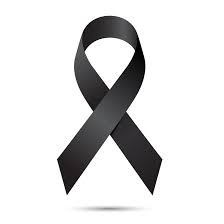Grief and memory
Grief is the price we pay for love.
Queen Elizabeth II
Experiencing a bereavement can be one of life’s toughest challenges. In the same way that each of our relationships are unique, each experience of grief is unique too.
While some writers have suggested that grief comes in stages, there is no one size fits all and our grief may not feel like we expected it to. This can lead people to question their grief and wondering if they should be feeling differently.
It’s worth remembering “should” can be an unhelpful word when it come emotions, especially grief. We might be in shock, with a wide variety and extremes of emotions in the days and months following the death of a loved one. These emotions may include sadness and loneliness, but also perhaps relief, anger and resentment. Human relationships are complex, and so is grief.
Whether we have lost someone after an illness or unexpectedly, feelings can be intense and sometimes confusing. Long-term and terminal illnesses can come with anticipatory grief for loved ones, while unexpected deaths can cause us to think ‘what if?’.
The death of someone, particularly if they have been a significant person in our lives, can affect us in both the initial period after their death but also in how we meet our needs going forward. How we navigate this is important for our wellbeing.
While there is no right or wrong way to grieve, all of us have the same emotional needs and finding ways to meet these after a loss can help us as we move forward.
What can we do to support ourselves while grieving?
Throughout our lives, we develop habits and routines that help us meet our needs.
Many of these are things we regularly do without giving much thought, such as what we do to look after our bodies or spending time with family and friends. It could also be going to work or taking part in hobbies that we enjoy.
When someone dies – whether it’s someone close, a peer or colleague, or someone in the public eye who we didn’t know in person but felt a connection to – it can lead to changes in our routines, which means we may need to meet our needs in new ways.
This will look different for each person, but may include things like getting out of the house for a walk, eating well and resting or spending time connecting to friends and family. These small steps will not take away our grief, but are important parts of looking after our wellbeing.
Our memory resource
Harnessing the power of memory can sustain us through the darker times. It can be really helpful to find ways to connect with memories that give us hope and remind us of our own strengths and abilities.
Sharing these stories with others can help us to feel closer to our loved one. Reminiscing about funny moments and talking about happy memories can help you to connect to emotions like happiness, hope and connection.
The Persian poet and philosopher, Rumi, said, “When we are dead, seek not our tomb in the earth, but find it in the hearts of humanity.”
We can keep our loved ones close, and continue their legacy through remembering things they’ve taught us, and thinking about what gave them meaning when they were alive.
Memories are formed as a result of connections between neurons in the brain. When we learn something, we form connections and the more we’re exposed to what we’ve learned, the stronger the connections.
We therefore might remember a lost loved one in the recipe they passed down or a skill they passed along. We also might remember someone in the way they’ve taught us to have empathy, or the value they placed in family or volunteering. Or perhaps we have memories of how someone acted in a situation which might guide us on how to tackle a present challenge.
Following a bereavement, we may have difficult memories of the persons illness and death and if these memories are troubling, it might be helpful to seek support.
We all grieve differently, at different times and in different ways
There isn’t a right or way to remember a loved one. However whilst grieving it is important to find ways that work for you to meet your needs in order to stay well.
Everyone one finds their own way to grieve. If you feel you would benefit from some extra help and support for your wellbeing at this time, Suffolk Mind can support you.











